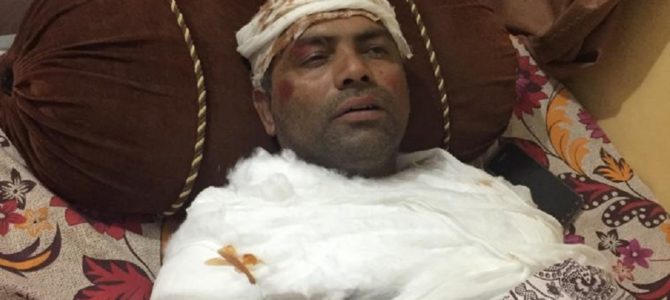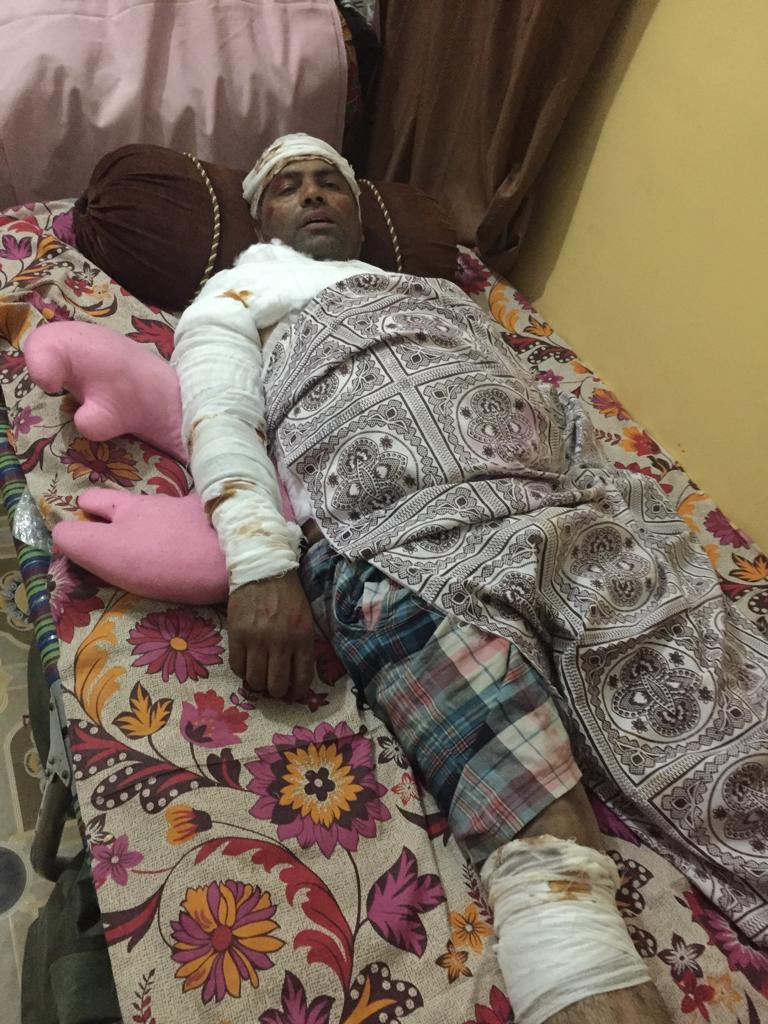
The day after the Washington Post published a March 16 article on the persecution of Christians in Pakistan, I received the email I feared would one day come. One of my best friends, a Pakistani Catholic named Michael, had been brutally assaulted by Muslim thugs in a suburb of Karachi.
The men burned his tuk tuk (also known as a motorized rickshaw). It was his source of livelihood, and a vehicle that my wife and I, with a number of close family and friends, helped purchase. His wife’s email attached a number of pictures of Michael, beaten, bruised, and bloody, after he was discharged from the emergency room.

I’m grateful to the WaPo for its increased coverage of this often-overlooked story of prejudice and violence, but this is no new phenomenon. The WaPo cites the “growing reach and aggressiveness of Pakistan’s once-obscure anti-blasphemy movement, which has gained wide support since staging a three-week protest outside the capital, Islamabad, in November.” The author, veteran reporter and Afghanistan/Pakistan Bureau Chief Pam Constable, notes that one group of Muslim antagonists was “treated deferentially by police” after they filed a complaint against a Christian man for allegedly committing blasphemy.
“Leaders of the area’s minority Christians,” Constable writes, “are beginning to fear they are no longer safe.” That would be putting it mildly. The truth is, Christians haven’t been safe in Pakistan for years. I should know — I spent three years in Thailand, where thousands of Pakistani Christians live as asylum seekers or refugees, having fled violent persecution in their native land.
A Long, Sad Story of Persistent Violence
Pakistani Christians have been fleeing to Thailand for more than a decade. My very first Sunday after I moved to Thailand in the summer of 2014, I met dozens of them at a large Catholic parish in downtown Bangkok. That parish alone ministered to hundreds of Pakistani families, all either asylum seekers who had applied to the United Nations High Commissioner for Refugees (UNHCR) for refugee status, or refugees waiting to be placed in some third country. The UN only places about 1-2 percent of refugees annually, so it can be a long wait.
The stories of the many Pakistani Christians I met shared many similarities. Typically, Pakistani Christians have endured many socio-cultural and economic prejudices in their land of origin. Most worked menial jobs at below subsistence wages. They were segregated, verbally and physically abused, and often unfairly accused of blasphemy.
For example, a number of Muslim men arrived at Michael’s father’s funeral, supposedly to pay their respects. Yet the men quickly turned the conversation to Islam, and demanded that Michael and his family convert. Michael refused: “I know only Jesus,” he declared. The men threatened to kill Michael and marry his wife and teenage daughter off to Muslim men.
After that incident, another Muslim robbed Michael at gunpoint. He was publicly accused of blasphemy, a charge that often incites violent mobs eager for Christian blood. Michael took his family into hiding, and eventually to Thailand, with his entire life’s savings (several hundred U.S. dollars). There they waited for five years, hoping the UN would grant them refugee status.
Their application was denied, as was their appeal. They were thrown into a Thai detention center, enduring terrible conditions. They lived there for eight months, before they finally begged my family and a few other generous friends to help send them back to Pakistan. Their teenage daughter, now college age, has spent much of her upbringing on the run, or in jail.
Michael’s story is not unique. Another family we developed a close bond with had endured far worse. A large, middle-class family of Christians, also from Karachi, they were also accused of blasphemy. One son was accused of having torn pages out of the Quran. He fled the country years ago, and now lives in the Netherlands.
His brother, a registered nurse, was likewise accused of blasphemy, and fled the hospital where he worked after a man pulled a gun on him and his wife and began shooting at them. Two of their nieces were abducted by Muslim men on the street and set on fire. I can attest to the veracity of their story — the two nieces, who likewise fled to Bangkok, showed me the burn marks on their torsos.
Most of the family, 17 people now, now live a few blocks from that same Bangkok Catholic parish, crammed into a few concrete rooms with no air conditioning, where they have waited for years. Their application for refugee status, like that of Michael’s family, has been denied.
The Cold, Hard Truth of Islamic Intolerance
I could go on with many more stories, as I have, at The Federalist, New Oxford Review, Ethika Politika, and The Catholic Thing, among other publications. The cold, hard truth is that Christians the world over suffer tremendous persecution at the hands of Muslim extremists and many Muslim governments.
As noted in a 2017 Public Discourse opinion, Brian Grim and Roger Finke in their 2011 book “The Price of Freedom Denied” demonstrate that a moderate-to-high level of violent religious persecution is found in 62 percent of Muslim-majority countries, compared to only 28 percent of Christian-majority countries and 60 percent of all other countries. Moreover, 78 percent of Muslim-majority countries have high levels of government restrictions on religious practices, compared to 43 percent of all other countries and 10 percent of Christian countries.
The only part of the Muslim world where there is significant freedom for Christians is West Africa. In many Muslim countries, conversion to Christianity is a capital crime, a law that directly stems from the most widely held interpretations of the Quran.
I am grateful whenever a mainstream media outlet features reporting or commentary on the discrimination and violence Christians endure across much of the Muslim world. Yet, as is the case with this most recent Washington Post feature, mainstream media often act as if Muslim intimidation or violence is some new phenomenon or isolated incident, rather than a longstanding, endemic problem in Muslim countries. A book by Muslim convert to Christianity Patrick Sookhdeo (a former seminary professor of mine) on Pakistan’s oppression of Christians was published in 2002.
Indeed, Christians have been fleeing Muslim-dominant countries for generations. To borrow the WaPo’s slogan since the 2016 presidential election, Christian minorities are largely “dying in darkness.” If mainstream media want to restore American trust, more reporting on these kinds of incidents — and less rose-colored glasses in reference to Islam — would be welcome. I just hope Michael’s suffering isn’t in vain.
You can help Michael with his health expenses, support his family while he recovers, and buy a new rickshaw at his GoFundMe.









